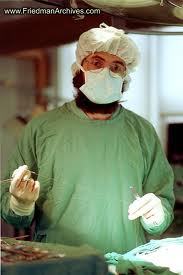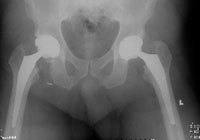
I was not ready for the call as I resurfaced from physical therapy last Tuesday morning. Chandra, my baby sister, had died in her sleep. It was sad in so many ways,
It was sad because of her age. Forty-seven years old is not old, especially when it is over a decade younger than me. Isn’t that how we use the terms “young” and “old?”
It was sad because of the timing. While her body was that of someone twice her age, she had begun to make some better health choices. She was in love and her marriage partner was supportive and present.
But, not all was sad.
She died in her sleep quietly and calmly. She died knowing she was loved and was making headway against the storms and disappointment of her life. Most importantly, she died knowing she was seeking the fellowship of God and made her decision personal and public when I baptized her last year.
When I stood to speak at her funeral, which was considerably more difficult than I had imagined, I began by saying what was not a surprise to any of my siblings: “I don’t believe any of the children of our family had it as difficult as Chandra did.”
The baby of the family, she contradicted what most birth order experts say about those born last, in our case, the last of six. Her “difficulty” or “demon” or whatever you call it, was a product of both genes and environment, both nature and nurture. Born within the destructive contours of alcoholism and family dysfunction, she never got out of the starting gate for the race that was her life.
As I prepared for the funeral, I oddly found myself fumbling through passages from the gospel of Luke. I was attracted to the story of the man with leprosy and the father with a wayward son. Then it hit me why. In both of these stories, the person with the physical disease and the person with the emotional dis-ease, were people whose “illness” came from their nature and nurture.
Likely the result of a sibling rivalry boiled over, the nurture of a loving father could not convince the adventurous son to stay within the net of family support. Likely the result of bacteria, gone untreated and chronic, the nature of leprosy was progressive, causing permanent damage to the skin, nerves, limbs and eyes.
Nature or nurture, disease or dis-ease, what I discovered in these two stories was that it did not matter to Jesus. While I, and many of the people who knew her, defined Chandra by her “illness,” Jesus had this wonderful ability to love and to understand that “illness is illness,” and no matter what its cause, people are so much more than their illnesses.
Without any questions asked, I heard Chandra in the words of the leper when he said, “Lord, if you will, you can make me clean. And (Jesus) stretched out his hand, and touched him, saying, ‘You will be clean.’” For Jesus, illness is illness, something to be set right by the love of the one true living God.
No, Chandra didn’t wake up last Tuesday to face her illness. She woke up to the voice of the one who would not define her by her illness. She woke up to the one who touched her and said, “You will be clean.” Thanks be to God!
 When I was finally able to wake up (control people hate to be put to sleep), I was immediately conscious of two things: while I felt stiff, I didn’t feel a lot of pain including the right arm which had been throbbing and numb for weeks. I delayed my excitement because I was still drugged. Within 24 hours, I would realize that 85% of the previous right arm pain was gone.
When I was finally able to wake up (control people hate to be put to sleep), I was immediately conscious of two things: while I felt stiff, I didn’t feel a lot of pain including the right arm which had been throbbing and numb for weeks. I delayed my excitement because I was still drugged. Within 24 hours, I would realize that 85% of the previous right arm pain was gone.

